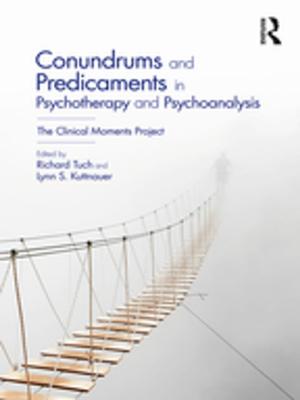The Renaissance Drama of Knowledge
Giordano Bruno in England
Nonfiction, Religion & Spirituality, Philosophy, Medieval, History, Renaissance, Fiction & Literature, Literary Theory & Criticism| Author: | Hilary Gatti | ISBN: | 9781136182990 |
| Publisher: | Taylor and Francis | Publication: | February 15, 2013 |
| Imprint: | Routledge | Language: | English |
| Author: | Hilary Gatti |
| ISBN: | 9781136182990 |
| Publisher: | Taylor and Francis |
| Publication: | February 15, 2013 |
| Imprint: | Routledge |
| Language: | English |
Giordano Bruno’s visit to Elizabethan England in the 1580s left its imprint on many fields of contemporary culture, ranging from the newly-developing science, the philosophy of knowledge and language, to the extraordinary flowering of Elizabethan poetry and drama.
This book explores Bruno's influence on English figures as different as the ninth Earl of Northumberland, Thomas Harriot, Christopher Marlowe and William Shakespeare. Originally published in 1989, it is of interest to students and teachers of history of ideas, cultural history, European drama and renaissance England.
Bruno's work had particular power and emphasis in the modern world due to his response to the cultural crisis which had developed - his impulse towards a new ‘faculty of knowing’ had a disruptive effect on existing orthodoxies – religious, scientific, philosophical, and political.
Giordano Bruno’s visit to Elizabethan England in the 1580s left its imprint on many fields of contemporary culture, ranging from the newly-developing science, the philosophy of knowledge and language, to the extraordinary flowering of Elizabethan poetry and drama.
This book explores Bruno's influence on English figures as different as the ninth Earl of Northumberland, Thomas Harriot, Christopher Marlowe and William Shakespeare. Originally published in 1989, it is of interest to students and teachers of history of ideas, cultural history, European drama and renaissance England.
Bruno's work had particular power and emphasis in the modern world due to his response to the cultural crisis which had developed - his impulse towards a new ‘faculty of knowing’ had a disruptive effect on existing orthodoxies – religious, scientific, philosophical, and political.















